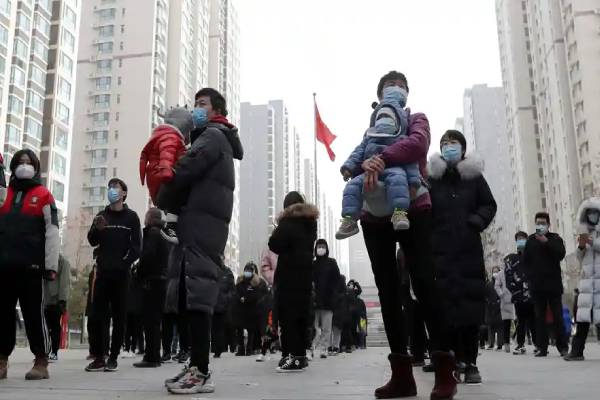Anti-virus regulations that had shut down China’s largest metropolis, Shanghai– home to 25 million people were relaxed on Wednesday, allowing 4 million more people to leave their homes.
Nearly 12 million are permitted to go outdoors, according to health official Wu Ganyu.
According to Wu, some people are not permitted to leave their neighborhoods, and large gatherings are prohibited.
While China’s case numbers remain low, the ruling party is enforcing a “zero-COVID” policy.
The government reported 19,927 new cases in China’s mainland on Wednesday. Shanghai accounted for 95 percent of all cases, or 18,902 in total.
Seven persons with COVID-19 died Tuesday, according to the Shanghai city health administration, but the fatalities were caused by cancer, heart disease, and other illnesses. Except for two, all of those who died were over the age of 60.
Following a spike in infections in March, Shanghai and other industrial sites were shut down, resulting in complaints about a lack of food and pharmaceutical supplies.
Quarantine centers and other public buildings have been ordered for people who test positive but have no symptoms in Shanghai.
Local officials were ordered by the Ministry of Agriculture on Wednesday to avoid taking any actions that could obstruct farmers’ spring planting, which feeds China’s 1.4 billion people.
Due to the shutdowns of Shanghai and other industrial areas, the International Monetary Fund lowered its prediction for Chinese growth this year to 4.4 percent from 4.8 percent.
That percentage is down by almost half from last year’s 8.1% growth and below the ruling Communist Party’s 5.5% target.
Due to the shutdowns of Shanghai and other industrial centers, the International Monetary Fund reduced its forecast for Chinese growth this year to 4.4 percent from 4.8 percent.





